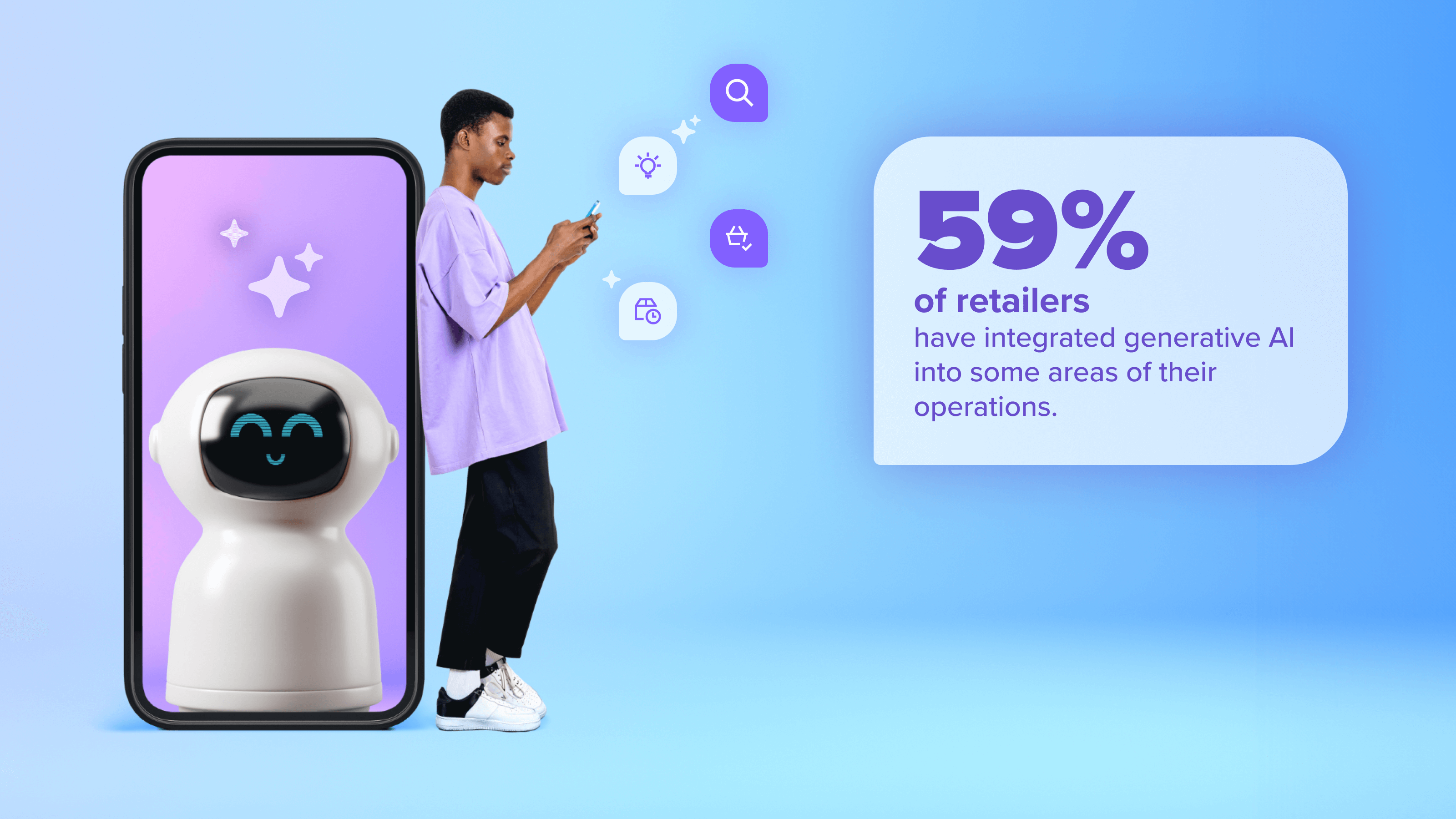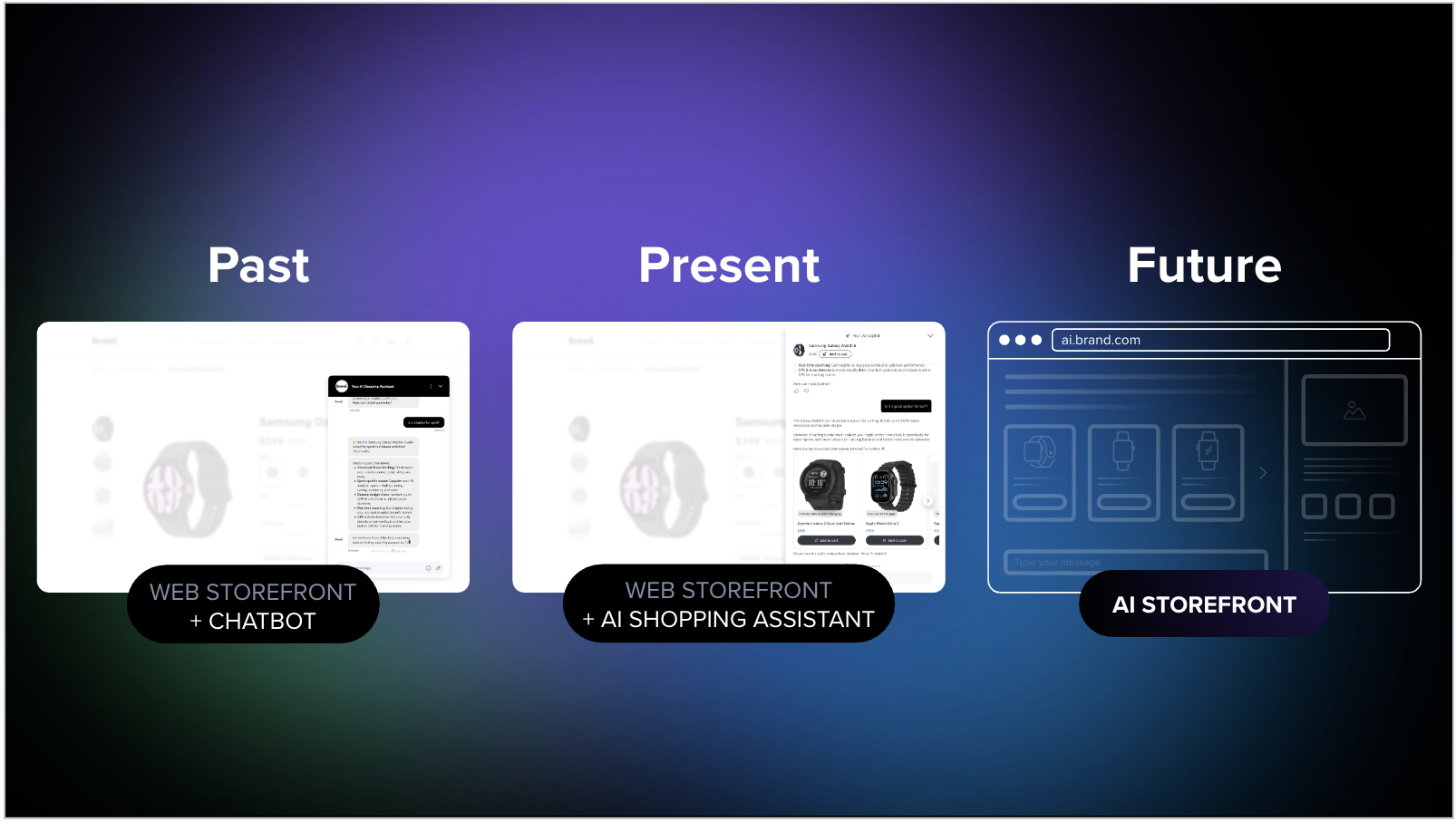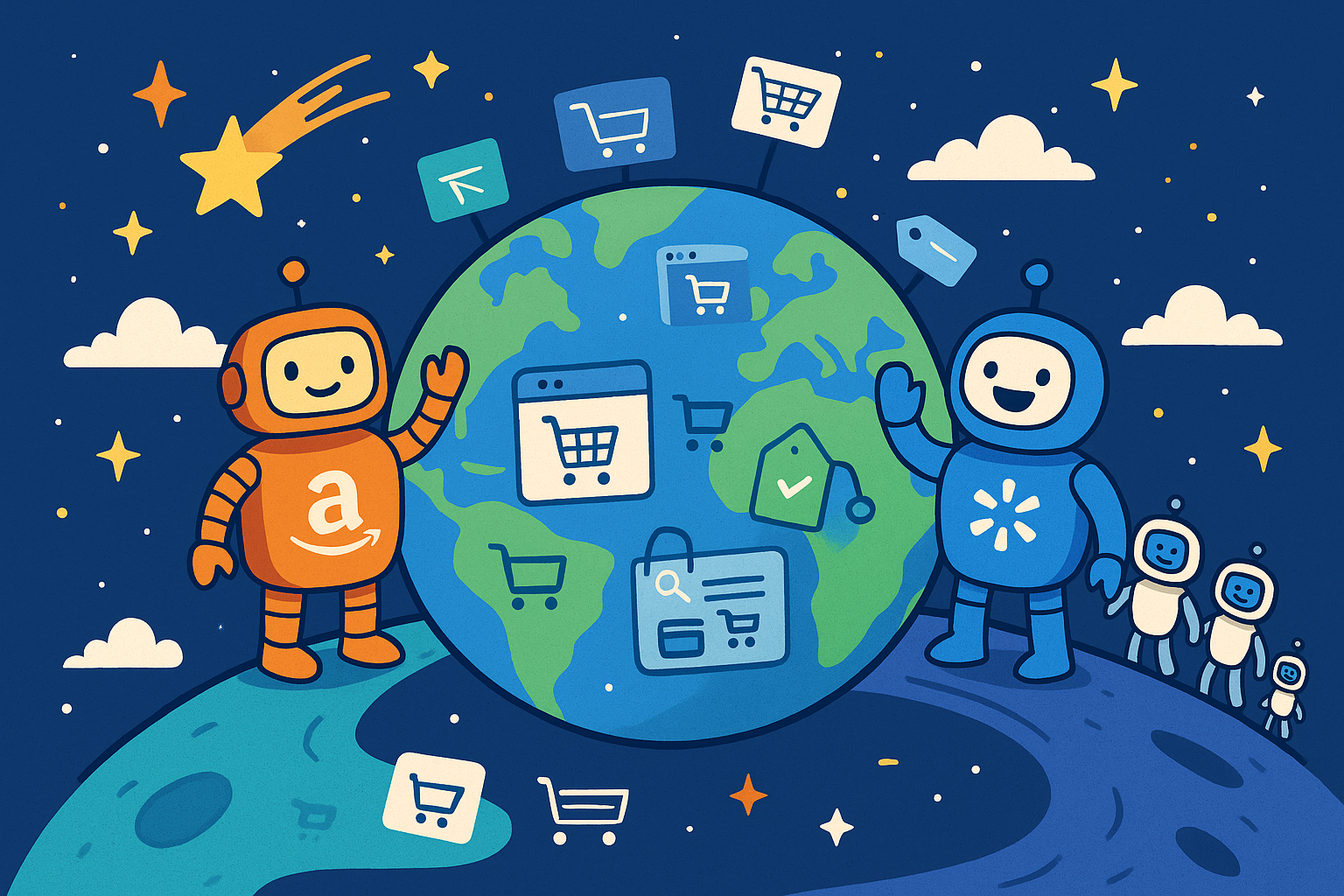Where E-commerce Retailers Are Bringing AI Into Their Online Shopping Journeys
Julia Lackey

As artificial intelligence continues reshaping industries, retail is leading the charge by integrating AI-based technology—like chatbots and virtual assistants—that make online shopping more personalized, efficient, and scalable. Data from our report with eTail and WBR Insights sheds light on the ways organizations are harnessing AI to drive conversions, streamline their user experience, and foster customer loyalty—all while slashing customer service costs. Although many retailers have seen substantial growth from their efforts, they recognize that the potential of these tools is still untapped. This article details how brands currently use AI in their business operations, and which areas they’ve pinpointed as the most important for future investments.
Key Insights: Generative AI Trends in Retail and E-commerce
- 59% of retail executives have integrated generative AI into some areas of their operations, while 32% are still in the early stages of using it.
- 37% use generative AI for search and discovery, but 81% of these respondents are only somewhat satisfied with their current capabilities in this area.
- 95% agree or strongly agree that the benefits of generative AI justify its costs.
- 34% of executives will increase their investment in generative AI over the next five years.
The Role of AI in Retail Today
From chatbots offering round-the-clock customer support to predictive analytics optimizing inventory, AI’s applications in retail are multifaceted and deeply impactful.
AI is now a vital component across various retail functions, particularly in customer service and marketing. 85% of retailers report using generative AI to improve shopper engagement and streamline their online customer service, while 83% say they use it to enhance their marketing capabilities and promotions.

AI-Powered Personalization in E-commerce
One of AI’s most transformative roles in e-commerce is its ability to create hyper-personalized shopping experiences. Leading brands like Samsung, Caudalie, OtterBox, and Payne Glasses are already leveraging generative AI to predict consumer preferences, recommend products, and craft individualized marketing content.
The trend of retailers using AI for some level of personalized customer service is only expected to grow, as this type of brand-consumer interaction drives higher engagement, sales, and customer satisfaction.
Hyper-personalized user experiences that AI-powered tools enable isn’t just a nice-to-have—it’s essential for e-commerce leaders. 78% of retail executives surveyed predict that AI’s ability to enhance personalization will be critical to retaining customers and setting their brand apart from competitors.
Improving Online Customer Service
Our report found that an impressive 98% of retailers believe generative AI significantly enhances operational efficiency, redefining the standards of productivity in retail.

In areas like online customer service, the limitations of business hours and high traffic volumes are a thing of the past.
AI-powered chatbots and virtual assistants are able to deliver on this promise of providing around-the-clock assistance that’s instant, tailored, and accurate, and can address a wide range of questions, like FAQs, order tracking, and product advice.
Overcoming the Challenges of Integrating Artificial Intelligence in Retail
Despite 59% of retailers reporting having fully integrated generative AI into their operations, this process isn’t without challenges. 25% are still reluctant to do so because of data privacy concerns, while 20% face a skills gap in their organization’s AI expertise.

As organizations ramp up their AI capabilities, they’re taking the necessary steps to overcome these obstacles. Retailers are not only prioritizing privacy, but also investing in training and collaborating with AI experts to ensure a smooth internal integration.
A key area where AI can truly make a difference is in enhancing data security and fraud detection. Many brands are exploring software that would help with fraud prevention and protect both their customers and business.
Addressing Data Privacy Concerns
With the growing use of AI, data privacy remains top of mind for both businesses and customers. The report shares that 71% of executives are concerned about the potential customer backlash their company might receive from using AI for things like conversation personalization and data handling.
To mitigate these concerns, brands are adopting transparent and responsible practices that assure shoppers of their data’s safety. They include:

Bridging the AI Expertise Gap in a Retail Business
Many brands recognize that building AI expertise internally is crucial for long-term success. This has driven companies to work closely with providers, leverage third-party support where needed, and develop their workforce’s AI skills.
Those in the retail industry who fail to address this skills gap risk missing out on the competitive edge that these solutions offer.
Future Trends: The Growing Impact of AI in Retail
Looking forward, retailers are optimistic about AI’s potential. 53% believe AI will have a moderate impact on retail’s future, while 35% see it as playing a significant role. And as the positive impact of customer-facing generative AI becomes more apparent to retailers, this number will continue to grow.
As AI tools continue to evolve, this tech promises to become even more integral in e-commerce strategies—with use cases expanding across personalized marketing, search, and customer service.
AI Innovations for Search and Discovery
Search and discovery in online shopping have evolved significantly, with 37% of retailers using AI to power these experiences.
Not only can interactive AI chatbots answer a wide range of customer questions, but they can also proactively suggest questions to ask about the items on a product page based on shoppers’ browsing habits and search context.
Because of this, 59% of the respondents would consider it one of their best investments if they could use generative AI to make their e-commerce website even more flexible through interchangeable components.
In this context, it means that generative AI would automatically generate content, recommendations, and personalized materials that fit within the modules of their e-commerce operations. From there, the modules could be interchanged as needed to create an entirely unique shopping experience for each website visitor.
The report does reveal that 81% of those using AI for search and discovery are only somewhat satisfied, meaning that there’s definitely room for improvement. The more this tech can adapt to customer needs in real time, the more efficient and satisfying the search experience will be.

Enhancing Inventory Management and Demand Forecasting
Demand forecasting is another area where AI shines. By predicting relevant topics like seasonal trends based on data and customer preferences, retailers can optimize their inventory and pricing strategies, and reduce costs related to overstock or stockouts.
AI-driven demand forecasting tools are becoming critical assets, with 64% of retailers planning to expand their use of AI in inventory management. The accuracy these solutions bring to inventory decisions translates into substantial savings and a smoother customer experience.
AI’s influence in retail is undeniable, and as it grows more sophisticated, so does its potential to reshape the industry. Retailers are rapidly moving from basic applications to advanced uses, like demand forecasting, hyper-personalization, and real-time customer support—all designed to create a seamless and engaging online shopping journey.
As more e-commerce leaders invest in AI, it’s clear that those who don’t adopt it will be outpaced by their competitors. The retailers who are ready to capitalize on its power today will lead the market tomorrow.

.png)
.png)






